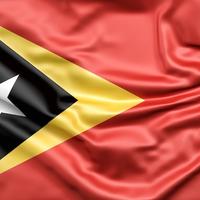Línguas de Timor-Leste
Languages|||
Alguns países têm só uma língua oficial, como é caso de Portugal, Brasil e muitos outros, mas também há países que têm mais do que uma.
Some|countries|"have"|only|one||official language|como||case|||Brazil||many|others|but||there are|||||||
Some countries have only one official language, such as Portugal, Brazil and many others, but there are also countries that have more than one.
Fora do espaço lusófono temos o exemplo de países como a Bélgica, onde as línguas oficiais são o neerlandês ou holandês, o alemão e francês, ou a Suíça com o alemão, francês, italiano e romanche; Timor-Leste é igualmente um país em que são oficiais o português e o tétum, a principal língua local.
"Outside"||Lusophone world||we have||example|||||Belgium||||official languages|are||Dutch|or|Dutch||German||French|||Switzerland|||||Italian||Romansh||||"also"||country||||||Portuguese|||Tetum||main|language|local language
||||||||||||||||||||||||||||||||||romancio|||||||||||||||||||
Outside the Lusophone space, we have the example of countries like Belgium, where the official languages are Dutch or Dutch, German and French, or Switzerland with German, French, Italian and Romansh; Timor-Leste is also a country in which Portuguese and Tetum, the main local language, are official.
Muitos países não incluem na lei tal questão, mas o n.º 1 do artigo 13.º da Constituição da República Democrática de Timor-Leste prevê como línguas oficiais o tétum e o português.
|||"include"||law|such a|issue|||No.|No.||article|||Constitution|||Democratic Republic||||"provides for"||||||||
Many countries do not include such an issue in the law, but Article 13 (1) of the Constitution of the Democratic Republic of Timor-Leste provides for Tetum and Portuguese as official languages.
O ensino do português foi proibido durante a ocupação indonésia, que durou 24 anos, sendo a língua portuguesa reintroduzida no país após a independência.
|teaching||||prohibited|during|||||lasted||"with"||||reintroduced|||||
The teaching of Portuguese was banned during the 24-year Indonesian occupation, with Portuguese being reintroduced after independence.
O governo português contribuiu para essa reintrodução enviando professores de português para Timor.
|The government||contributed||this|reintroduction|sending|Portuguese teachers||||
O tétum, de origem malaio-polinésia, já existia no território antes da chegada dos Portugueses.
|||origin|Malay-Polynesian|Polynesian|already|"existed"||territory|||arrival||Portuguese people
Tetum, of Malay-Polynesian origin, already existed in the territory before the arrival of the Portuguese.
Com a chegada dos portugueses à ilha, o tétum apodera-se de vocábulos portugueses e malaios e integra-os no seu léxico, tornando-se uma língua crioula e simplificada.
||||||island||Tetum language|takes over|||Portuguese words|||Malay words||incorporates||||lexicon|||a||creole language||simplified
||||||||||||||||||||||||||creola||
With the arrival of the Portuguese on the island, Tetum takes over Portuguese and Malay words and integrates them into its lexicon, becoming a creole and simplified language.
Existem no entanto mais línguas locais em Timor-Leste, como por exemplo o fataluco e o macassai.
There are|||||local languages||||||||Fataluku language|||Makasae language
There are, however, more local languages in Timor-Leste, such as Fataluco and Macassai.
Atualmente, o tétum é a língua com maior expressão em Timor-Leste.
Currently|||||||greatest|prevalence|||
Tetum is currently the most widely expressed language in Timor-Leste.
Segundo Ramos-Horta, "Outras línguas timorenses terão de ser acarinhadas e protegidas pois elas fazem parte do património histórico e cultural timorense.
According to|||Other|||"will have to"|||cherished||protected|"because"|||||heritage|||cultural heritage|
|||||||||coccolate||||||||||||
According to Ramos-Horta, "Other Timorese languages will have to be cherished and protected as they are part of the Timorese historical and cultural heritage.
O Timor-Leste independente não poderá negar aos diferentes grupos etnolinguísticos que compõem a sociedade as suas próprias línguas e culturas.
||||||deny|||groups|ethnolinguistic groups||make up||society|||own|||cultures
Independent Timor-Leste cannot deny the different ethnolinguistic groups that make up society their own languages and cultures.
".
🇧🇷
À língua indonésia e ao inglês é reconhecido apenas o estatuto de "línguas de trabalho em uso na administração pública a par das línguas oficiais, enquanto tal se mostrar necessário", segundo reza o artigo 159.º da Constituição da República Democrática de Timor-Leste.
||||||||only||status|||||||||||||||||||||states|||||||||||
|||||||||||||||||||||||||||||||stabilisce|||||||||||
Indonesian and English are recognized only as "working languages in use in the public administration alongside official languages, as appropriate", according to Article 159 of the Constitution of the Democratic Republic of Timor-Leste. .
Mercê de fluxos migratórios de população chinesa, o mandarim, o cantonês e, principalmente, o hakka são também falados por pequenas comunidades.
Thanks to||flows|migratory|||Chinese population||Mandarin||Cantonese||mainly||Hakka dialect|||spoken||small|communities
Grazie ai||flussi migratori||||||||||||||||||
Thanks to migratory flows of the Chinese population, Mandarin, Cantonese and, mainly, Hakka are also spoken by small communities.
Gracias a los flujos migratorios de la población china, el mandarín, el cantonés y, principalmente, el hakka también son hablados por pequeñas comunidades.
fonte: Wikipédia
source|Wikipedia
source: Wikipedia

